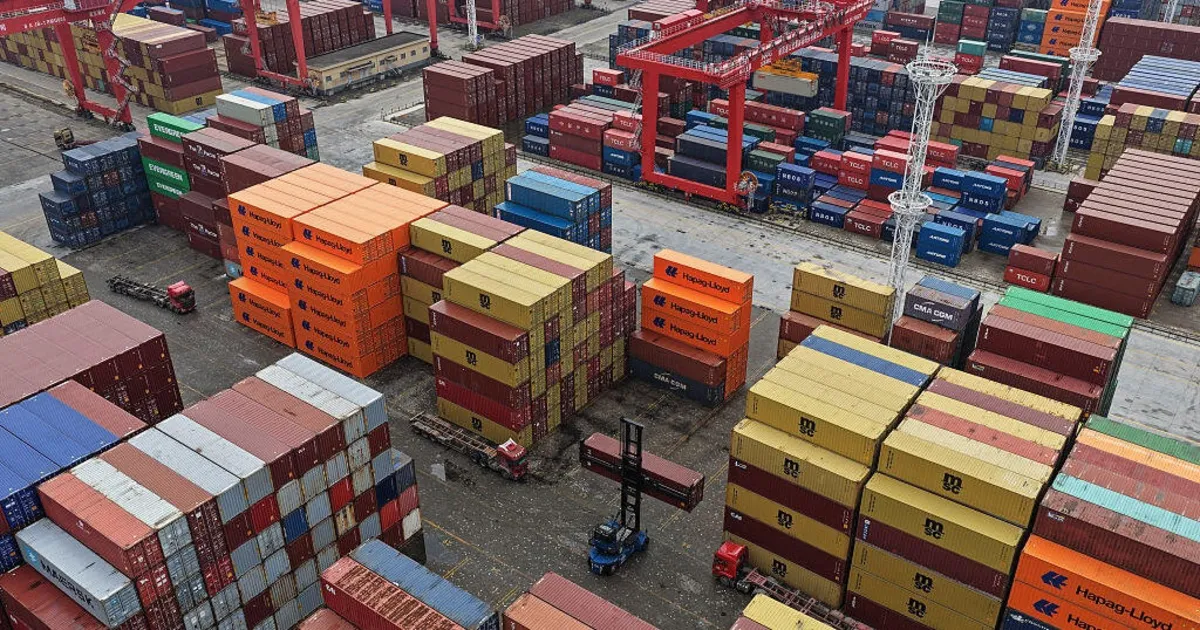
In a significant move, the U.S. Senate voted on Thursday to pass a resolution aimed at blocking President Trump's tariffs imposed on various countries around the globe. This vote represents the third major challenge to the president's trade policies within the week. The resolution was approved with a vote of 51 to 47, where four Republican Senators joined their Democratic colleagues in support of the measure.
The Republican Senators who broke ranks with their party included Mitch McConnell and Rand Paul from Kentucky, along with Susan Collins of Maine and Lisa Murkowski of Alaska. It is important to note that this resolution did not require the typical 60-vote threshold for most legislative actions, allowing it to pass with a simple majority instead.
Despite its passage in the Senate, the resolution is expected to face significant hurdles in the Republican-controlled House of Representatives, rendering it largely a symbolic gesture. The Democrats, led by Sen. Ron Wyden of Oregon, successfully forced the vote by circumventing Senate GOP leadership. They utilized a provision of the International Emergency Economic Powers Act, which President Trump invoked to impose the tariffs.
In April, President Trump declared a national emergency, citing persistent structural imbalances in the global trading system. Following this declaration, he announced the implementation of a minimum baseline of 10% tariffs on goods imported from all foreign nations, an event he referred to as "Liberation Day."
During the Senate floor debate preceding the vote, Sen. Wyden argued that the president's actions exceeded the authority granted by the law. "This is why I'm urging the passage of this bill to finally end the president's unlawful tariffs," he stated. Wyden emphasized that the Senate should not be a mere spectator in federal governance, particularly regarding international trade and tariffs, areas where Congress holds clear authority.
On the other hand, Republican Senator Mike Crapo from Idaho opposed the resolution, arguing that it would be counterproductive to supporting American families and businesses. He stated, "For decades, countries worldwide have raised tariff and non-tariff barriers against American businesses, increasing costs without any response from the U.S." He lauded President Trump's approach as a necessary response to these longstanding challenges.
The vote comes on the heels of President Trump announcing a reduction in tariffs on Chinese goods following a meeting with Chinese President Xi Jinping. China was included in the "Liberation Day" tariffs and has been at the center of a prolonged trade conflict with the U.S. Vice President JD Vance, who recently engaged with Senate Republicans on the tariff issue, defended the administration's stance. He remarked that tariffs enable the U.S. to prioritize American workers and compel domestic industries to reinvest within the country.
Vance further elaborated, stating that tariffs serve as a powerful negotiating tool for the president during international trade discussions. The Senate had previously passed similar resolutions aimed at blocking Trump’s tariffs on Brazil and Canada, showcasing a growing bipartisan concern regarding the administration's trade policies.
As the situation evolves, the dialogue surrounding tariffs and international trade remains a contentious issue, highlighting the complexities of U.S. economic policy and its impact on global relations.